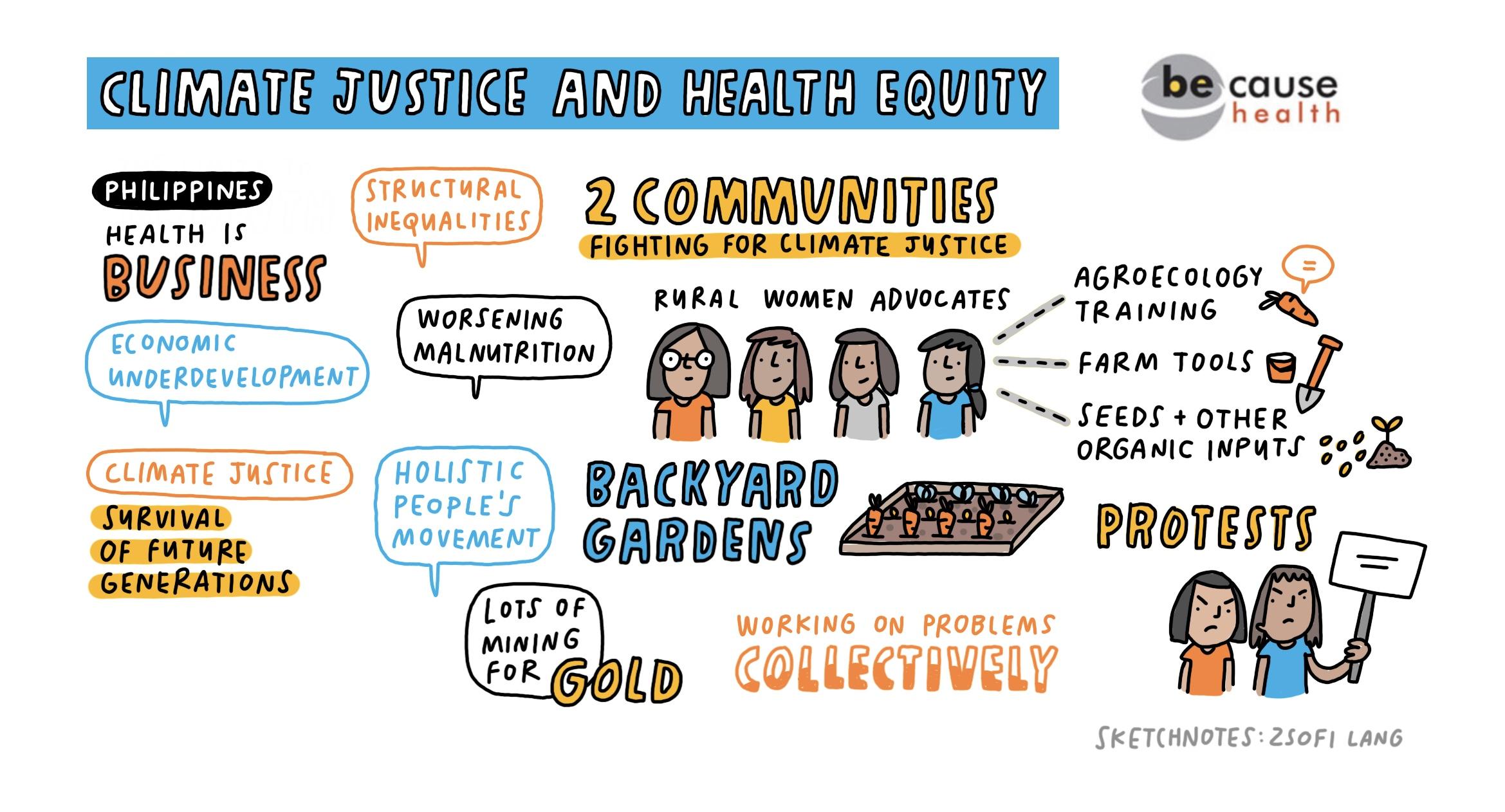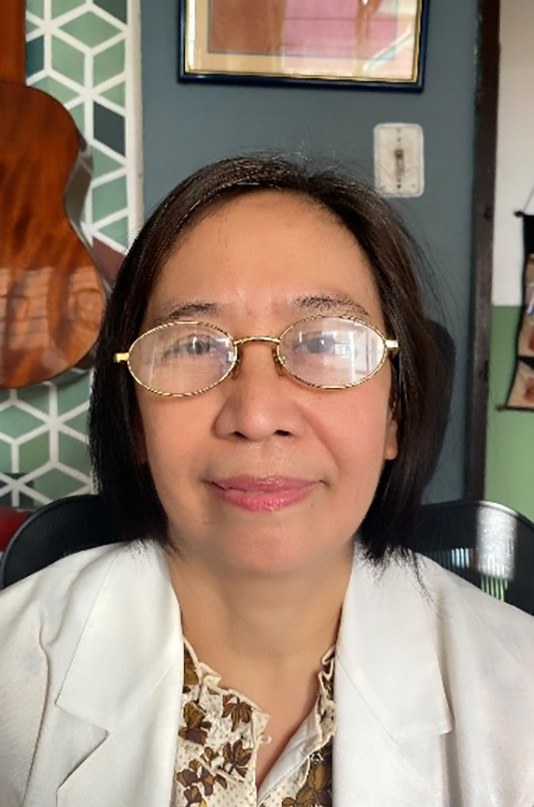
Virginia Talens gives a concrete testimony of what climate justice and health equity mean for the people in the Philippines. The majority of the Philippine people are poor and malnourished. 9 out of 10 farmers are landless, and 1 out of 3 children are stunted as a consequence of malnutrition. The harms of the climate emergency are intensifying and worsening these harsh conditions. Typhoons, droughts, a rising sea level, etc. are causing even more undernutrition and hunger in the Philippine communities. Vector borne diseases such as malaria and dengue, water borne diseases, respiratory and cardiovascular ailments and mental health issues are rising. The Philippines are devastated by the effects of the climate emergency.
These difficulties are worsened by incoherent laws, policies and projects that render people even more vulnerable to global warming. Business as usual, extractive and polluting mines, large scale dams, deforestation and militarisation and vilification of environmental defenders and activists are common place, instead of attention to disaster preparedness, adaptation and rehabilitation.

"Conflicting laws, policies and projects […] render people even more vulnerable to climate change."
By giving two examples of local communities fighting for climate justice, Virginia Talens shows that the consequences of the climate emergency are already felt in the field and are hitting the most vulnerable populations the hardest. That is why the fight against global warming is a fight for justice and equity. Climate justice entails just compensation for the victims of the climate emergency and the damage done. The fight for climate justice is a fight for environmental protection and rehabilitation to give the Philippine communities a sustainable future. The fight for climate justice is a fight for the right to health and food security. The fight for climate justice is a fight for the protection of indigenous people’s ancestral lands.
Indigenous people have been fighting for decades for their right to health, land and justice. It is very important to join them and form a mass people’s movement and collective action. For this, it is crucial indigenous people’s organisations can share their story and engage people globally in their fight for climate justice and health equity.
